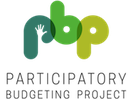In case you missed it, the McCourtney Institute for Democracy – an NCDD member organization – announced the winner of their 2015 Brown Democracy Medal earlier this fall. The medal went to Dr. Joan C. Tronto for her scholarly work in challenging us to rethink our democracy’s relationship to caring for people. We encourage you to read more about her work and the award in the Penn State News announcement below or to find the original here.
‘Caring Democracy’ author selected for Brown Democracy Medal
 Joan C. Tronto, professor of political science at the University of Minnesota and author of the book “Caring Democracy: Markets, Equality, and Justice” (NYU Press), has been selected as the 2015 recipient of the Brown Democracy Medal, which is presented annually by the McCourtney Institute for Democracy in Penn State’s College of the Liberal Arts. She received the Brown Democracy Medal and gave a public talk Oct. 30th, at a ceremony held at Paterno Library on Penn State’s University Park campus.
Joan C. Tronto, professor of political science at the University of Minnesota and author of the book “Caring Democracy: Markets, Equality, and Justice” (NYU Press), has been selected as the 2015 recipient of the Brown Democracy Medal, which is presented annually by the McCourtney Institute for Democracy in Penn State’s College of the Liberal Arts. She received the Brown Democracy Medal and gave a public talk Oct. 30th, at a ceremony held at Paterno Library on Penn State’s University Park campus.
The Brown Democracy Medal was endowed in 2013 by Penn State alumni Larry and Lynne Brown, class of 1971 history and class of 1972 education, respectively. The medal honors the best work being done to advance democracy in the United States and internationally. Under the award program, the McCourtney Institute for Democracy will recognize practical innovations, such as new institutions, laws, technologies or movements that advance the cause of democracy. In addition, future awards will highlight contributions in democratic theory that enrich philosophical conceptions of democracy and empirical work that promises to improve the functioning of democracies. Along with the medal, recipients receive $5,000, give a public talk at Penn State, and write an essay to be published by Cornell University Press.
In her groundbreaking book, “Caring Democracy,” Tronto argued we need to rethink American democracy, as well as our own fundamental values and commitments, from a caring perspective. She asked us to reconsider how we allocate care responsibilities in a democracy.
According to her book, Americans now face a caring deficit: there are simply too many demands on people’s time for us to care adequately for our children, elderly people and ourselves. At the same time, political involvement in the United States is at an all-time low, and although political life should help citizens to care better, people see caring as unsupported by public life and deem the concerns of politics as remote from their lives. Caring Democracy traces the reasons for this disconnection and argues for the need to make care, not economics, the central concern of democratic political life.
 ”The idea that production and economic life are the most important political and human concerns ignores the reality that caring, for ourselves and others, should be the highest value that shapes how we view the economy, politics and institutions such as schools and the family,” Tronto wrotes. ”Care is at the center of our human lives, but it is currently too far removed from the concerns of politics. We need to look again at how gender, race, class, and market forces misallocate caring responsibilities and think about freedom and equality from the standpoint of making caring more just.”
”The idea that production and economic life are the most important political and human concerns ignores the reality that caring, for ourselves and others, should be the highest value that shapes how we view the economy, politics and institutions such as schools and the family,” Tronto wrotes. ”Care is at the center of our human lives, but it is currently too far removed from the concerns of politics. We need to look again at how gender, race, class, and market forces misallocate caring responsibilities and think about freedom and equality from the standpoint of making caring more just.”
John Gastil, director of the McCourtney Institute for Democracy, said, ”The Institute chose to celebrate Dr. Tronto’s work because it forces people to rethink the obligations we have to one another in democratic societies. Modern rhetoric about democracy places due emphasis on personal freedom, but responsibilities can get overlooked. Dr. Tronto also stresses that caring for one another is less a burden than a fulfilling act, which reminds us all of how interdependent we are on one another across the country and across the generations.”
The McCourtney Institute for Democracy at Penn State promotes rigorous scholarship and practical innovations to advance the democratic process in the United States and abroad. The Institute examines the interplay of deliberative, electoral, and institutional dynamics. It recognizes that effective deliberation among citizens has the potential to reshape both the character of public opinion and the dynamics of electoral politics, particularly in state and local communities. Likewise, political agendas and institutional processes can shape the ways people frame and discuss issues. The Institute pursues this mission, in part, through supporting the work of its constituent units, the Center for Democratic Deliberation (CDD) and the Center for American Political Responsiveness (CAPR).
The Brown Democracy Medal review committee considered dozens of applications nationwide. The committee evaluated submissions based on the criteria of the innovation’s novelty, its effectiveness and potential for diffusion across different societies and cultures, its non-partisan orientation, and the recency of the democratic innovation.
You can find the original version of this Penn State News post at http://news.psu.edu/story/366183/2015/09/02/caring-democracy%E2%80%99-author-selected-brown-democracy-medal.



 Who were your partners for the project (if any)?
Who were your partners for the project (if any)?



